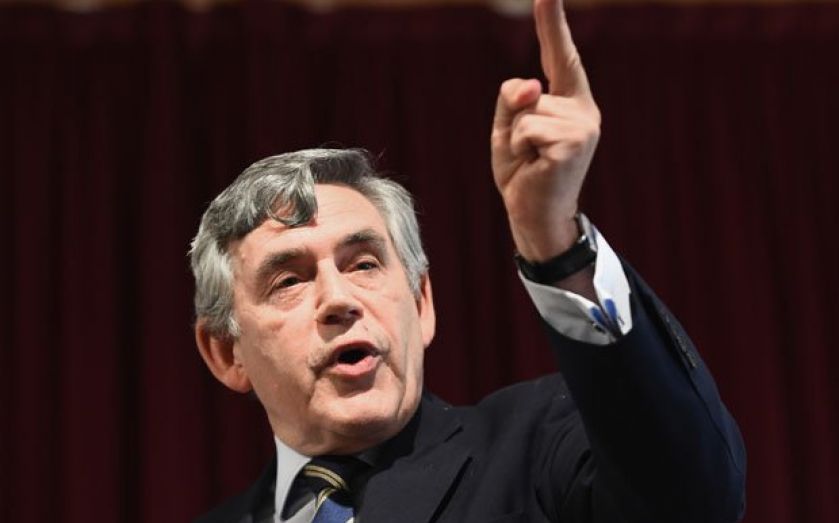Gordon Brown made Britain stronger and fairer: He deserves recognition

I FIRST joined Gordon Brown, who has just announced he is standing down as an MP at the next election, back in 1989. I left the Treasury to work for Labour in its new Economic Secretariat (consisting of me and one other), created by Gordon to increase the level of economic expertise Labour had. It seems like another lifetime; not only did I take a big pay cut, but Labour was 20 per cent behind in the polls and it looked like the party would never win another election. Worse, there was still a fight going on within Labour, with the old nationalisation and full-on Keynesian wing still in full throttle.
In this period, Gordon, along with John Smith, Tony Blair and Neil Kinnock, started to put Labour on the road to a modern economic policy for a social democratic party. They emphasised the economy’s supply-side, the need for investment, for macro stability, the importance of being pro- not anti-business, and for being open to trade and competition, not protectionist or backing monopolies. It was a move of monumental importance – not one to always make you popular with Labour activists, but totally necessary. It took time and Labour lost in 1992. But the seeds had been sown for an approach that would win elections and deliver a stronger economy.
Fast forward to 1997, when Gordon became chancellor. For most of this period, I was a special adviser in various departments. Not everything was perfect, but a firm grip on the finances was achieved and the deficit came down. The policies pursued by Gordon’s Treasury, not only to promote growth via everything from infrastructure investment to support for venture capital and science spending, but also an emphasis on fairness and social justice – the great passions that had always driven Gordon – were undoubtedly successful.
Some of this social agenda was achieved with progressive changes to tax, to pay for tax credits and improvements in public services that matter most to those on ordinary incomes. Some called it stealth redistribution – but it was effective nevertheless and maintained high public support.
The great blemish on his record was perhaps a consequence of Labour becoming too market friendly, and buying into the almost universal view that finance did not need to be too heavily regulated. The consequences were devastating, with the UK suffering deeply from the global crash.
But the leadership that I saw from Gordon as I worked in Downing Street during this global crisis was astonishing. He more or less cajoled the international community to take action to recapitalise their banks and to avoid a beggar my neighbour attitude to coping with the downturn. Both of these steps contributed to the world recession being less bad. Within the UK, we did everything we could to stop unemployment rising, firms collapsing and houses being repossessed – and so the damage was far less bad than in the recession of the 1990s. In fact, the UK economy was back in growth in the first quarter of 2010, and if Gordon’s policies had been continued by the next government, we might well have been talking about how the UK had the shortest recession in Europe, not one of the longest.
Like all politicians I have worked with, Gordon was by no means perfect. He was stronger in some areas than others. But in setting a new path for centre-left economic policy, having the UK’s voice respected on the world stage, by helping Britain through the biggest recession for years, and most recently for his intervention in the Scottish referendum, he certainly deserves recognition.
Dan Corry is chief executive of consultancy think tank NPC, writing in a personal capacity. He was a Treasury and Downing Street adviser in the last Labour government.